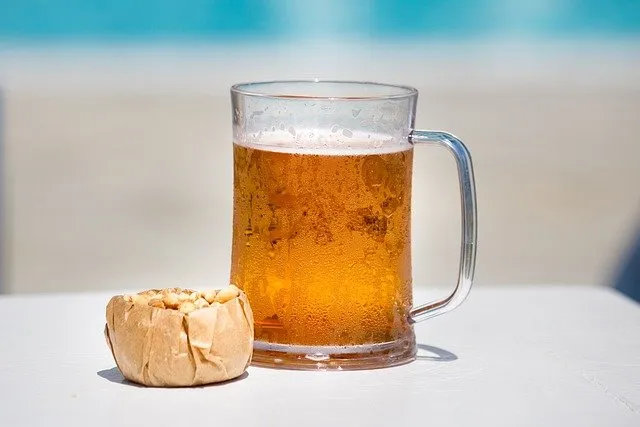If you wish to avoid alcohol but are unsure about the tax regulations, non-alcoholic beer is a wonderful substitute. We’ll talk about whether or not non-alcoholic beer is taxable in this blog post. Learn more by continuing to read!
Is Non-Alcoholic Beer Taxable?
Yes, sales tax applies to prepared foods and drinks served by restaurants. Drinks and food are both considered to be for human consumption. Beverages include natural fruit or vegetable juices, chocolate, milk, hot or cold beverages, and soft drinks.
Non-alcoholic (NA) choices have grown and are anticipated to keep growing as part of the wider shift to healthier beverages. However, the way NA is recognized as “beer”—or not—has a big impact on its prospective market. The following lists examples of state-imposed limitations on direct-to-consumer (DTC) shipments as well as an overview of how NA beer is generally treated under US federal law.
Read More: Does Non-Alcoholic Beer Have Yeast?
Federal Policy About Na Beer
Regarding Taxes
Beer is a fermented beverage that contains 0.5% or more alcohol by volume (ABV) that is brewed or made from malt, either entirely or in part, or from any substitute for malt, according to TTB standards.
Because NA beer has less than 0.5% ABV, TTB will not treat it as a “beer” under the Internal Revenue Code (IRC), and as a result, it will not be subject to federal alcohol excise taxes in the United States. (See: 27 C.F.R. 25.11.) The regulations refer to a malt beverage with less than 0.5% ABV as a “cereal beverage.” (See: 25.11.)
Formula Prerequisites
A formula must be submitted to and approved by TTB before production once a method is devised for a NA malt beverage. According to TTB policy, laboratory test results must be submitted if a NA malt beverage claims to be “alcohol-free.”
Productivity Problem
Reverse osmosis or other procedures that remove alcohol from other beverage ingredients as part of the creation of a NA beverage may be deemed distilling operations, necessitating the acquisition of a federal basic permit for a distillery producing distilled spirits. (Refer to ATF Decision 85-6).
Read More: Can You Get A Hangover From Non-Alcoholic Beer?
Labeling
Regardless of their alcohol content, malt beverages must comply with the standards of the Federal Alcohol Administration Act (FAA Act) by having some malted barley, some hops (or hop components or products), and undergone fermentation. The FAA Act’s definition of “malt beverage” lacks a minimum or maximum alcohol content criterion, which creates an anomaly.
Because they are made in the same way as regular beer and then de-alcoholized, nonalcoholic and alcohol-free brews are subject to TTB’s labeling and advertising regulations. Such items are explicitly covered by several restrictions. (See 27 CFR Section 7.71)
FDA Requirements
According to the Food and Drug Administration (FDA), nonalcoholic beverages (NA beverages) that do not fall under the FAA Act’s definition of malt beverages (beverages without malt and hops or unfermented beverages) must be labeled by the Food, Drug, and Cosmetic Act (FD&C Act), the Fair Packaging and Labeling Act (FPLA), 15 U.S.C. 1451–1461, and the Nutrition Education and Labeling Act.
These laws and FDA rules mandate that a nutritional facts label and complete ingredient list be provided. To create a production, labeling, and marketing strategy that complies with FDA regulations, a thorough explanation of the regulations will be required if a NA beverage without malt or hops or an unfermented beverage is being explored. The FDA has formulation and labeling recommendations for businesses.
State Regulation Of Na Beer Shipping Direct To Consumer
NA beer offers businesses the chance to sell their goods directly to customers in the majority of states without having to comply with the strict laws that govern the sale of beer.
Direct-to-consumer NA beer is subject to varying state regulations. The great majority of states have statutory definitions of “beer” that are comparable to those in the IRC and include an ABV minimum of 0.5%.
Read More: Does Non-Alcoholic Beer Have Sugar?
Some states have wide definitions of “beer” or “malt beverage” that are not linked to a specific alcohol concentration, including Arizona, Georgia, Idaho, and Tennessee (similar to the FAA Act). Other states, like Pennsylvania and Kansas, have separate laws that govern NA malt beverages directly.
Frequently Asked Questions
In Pennsylvania, Is Non-Alcoholic Beer Taxed?
In Pennsylvania, regardless of whether a customer is dining in or ordering takeout, a caterer or eating place is required to collect tax on the sale of food and non-alcoholic beverages. The sales tax in Pennsylvania is six percent.
Read More: Does Non-Alcoholic Beer Have Yeast?
Can You Drive In Pennsylvania While Consuming Non-Alcoholic Beer?
Additionally, you can drive while consuming non-alcoholic beer. Since you drink Heineken 0.0, it’s not technically considered to be a beer and has no alcohol at all. Even other N/A beers have a 0.5% alcohol limit cap, thus even they won’t
